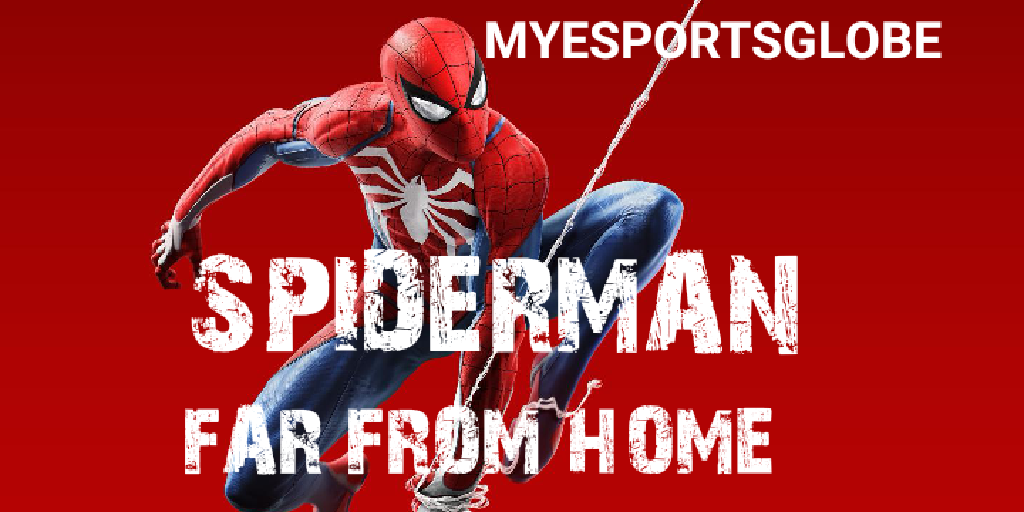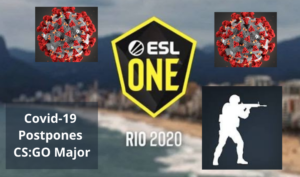Many film production companies have enlisted creators for virtual reality tie-ins to pair with movies but one of the latest examples allows gamers to tackle one of the coolest power fantasies around: swinging around New York as Spider-Man. In Spider-Man: Far From Home Virtual Reality you get to do just that and this taste of superhero life fuels a desire for more.
Disney’s wildly successful cinematic universe based on characters from Marvel comics reached a pivotal moment in not only the film universe’s fiction but in cinema itself, as Avengers: Endgame challenges for the most money ever earned in theaters. Sony was on the outside looking in with the Spider-Man film franchise but shook hands with Disney in 2017 so that the company’s Peter Parker could crossover with Iron Man, Black Panther and others. Far From Home, which hits theaters on July 2 this week, is the second solo Spider-Man film in this particular reboot of the franchise and the free VR game is a way for gamers to celebrate the film.
Spiderman Far from Home –
CreateVR is the team behind Spider-Man: Far From Home VR and also developed a tie-in for Spider-Man: Homecoming. In the new game, players select from a collection of suits based on ones used in the movie before swinging into action in New York. There are enemies to fight but the main attraction is swinging around using Spider-Man’s web slingers.
Marvel Powers United VR, which was released on July 26, 2018, was a positive step forward when it comes to VR games focused on fan-favorite superheroes and villains.
In exchange for an experience that balanced a large variety of characters, though, some heroes’ abilities are stifled. Flying characters, for example, are simply able to hover a higher level than other players. Spider-Man had the ability to zip to different spaces around a map but it didn’t emulate the web-swinging that we all hope for when stepping into the shoes of the heroic arachnid.
Spider-Man: Far From Home Virtual Reality gives us the swinging we crave and a taste of high-flying combat without a locomotion mechanic that squanders the immersion of being Spider-Man. It has ingredients that show that a full game would work and hopefully CreateVR gets an opportunity to produce something beyond these small slices of action.
Spiderman far from home basis –
Spiderman far from home is actually planned after the launch of the movie ‘Spiderman Far from Home.’ Graphics of the game are not that much good nor the visulas of the game. However, the story of the game is quite decent.
Spider-Man: Far From Home game is based upon the 2019 American superhero film based on the Marvel Comics character Spider-Man, co-produced by Columbia Pictures and Marvel Studios, and distributed by Sony Pictures Releasing.
It is the sequel to Spider-Man: Homecoming (2017) and the 23rd film in the Marvel Cinematic Universe (MCU). The film is directed by Jon Watts, written by Chris McKenna and Erik Sommers, and stars Tom Holland as Peter Parker / Spider-Man, alongside Samuel L. Jackson, Zendaya, Cobie Smulders, Jon Favreau, J. B. Smoove, Jacob Batalon, Martin Starr, Marisa Tomei, and Jake Gyllenhaal. In Spider-Man: Far From Home, Parker is recruited by Nick Fury and Mysterio to face the Elementals while he is on a school trip to Europe.
Discussions for a sequel to Spider-Man: Homecoming began by October 2016, and the project was confirmed later that year. Holland, Watts, and the writers were all set to return by the end of 2017. In 2018, Jackson and Gyllenhaal joined the cast as Fury and Mysterio, respectively. Holland revealed the sequel’s title ahead of filming, which began that July and took place in England, the Czech Republic, Italy, and the New York metropolitan area. Production wrapped in October 2018. The marketing campaign was the most expensive for a film ever and attempted to avoid revealing spoilers for Avengers: Endgame prior to its April 2019 release.
PLOT –
In Ixtenco, Mexico, Nick Fury and Maria Hill investigate an unnatural storm and encounter the Earth Elemental. Quentin Beck, a super-powered individual, arrives to defeat the creature. Beck subsequently defeats the Air Elemental and is recruited by Fury and Hill. Meanwhile, in New York City, the Midtown School of Science and Technology completes its academic year, which was restarted to accommodate the students who previously disintegrated five years ago as a result of Thanos’ actions.
They had reappeared un-aged, thanks to the actions of the Avengers. The school organizes a two-week summer field trip to Europe, where Peter Parker—who is still mourning the death of his mentor and father figure Tony Stark—plans to reveal to classmate MJ his attraction to her. Happy Hogan informs Parker that Fury intends to contact him, but Parker ignores Fury’s phone call.
Parker and his classmates travel to Venice, Italy, where the Water Elemental attacks. Parker helps protect his classmates, while Beck arrives and destroys the creature. Fury meets with Parker and gives him Stark’s glasses, which were meant for his successor.
The glasses enable him to communicate with and take command of the artificial intelligence E.D.I.T.H., which has access to Stark Industries’ databases and commands a large orbital weapons supply. Beck claims to hail from an alternate reality within the Multiverse, where the four Elementals killed his family and destroyed his civilization. He predicts that the Fire Elemental will appear in Prague. Parker declines Fury’s invitation to join the fight and returns to his class trip.
Gameplay –
It is presented from a third-person perspective showing the playable character and allowing the camera to be rotated freely around them. The primary playable character is the superhero Spider-Man, who can navigate the world by jumping, using his web shooters to fire webs that allow him to swing between buildings, running along walls and automatically vaulting over obstacles.
The player can precisely aim webs to pull himself towards specific points. Physical objects are required to attach webs to for swinging, and momentum and speed of the swing can be controlled by releasing the web at specific points to gain height or move more quickly. The game features an optional fast travel system that uses the New York City Subway system.
Combat is enacted using three buttons; one for dodging, one for physical strikes, and one for web-based attacks. Webbing can be used to incapacitate enemies and stick them to nearby objects, immediately removing them from battle. Enemies who are knocked from great heights are automatically stuck to a nearby surface in a web-cocoon, preventing death. Spider-Man can also use the environment to fight, jumping off walls and throwing objects like manhole covers, grenades and webbing-restrained enemies.
Successful and consecutive attacks build “Focus”, which can be partially used to heal Spider-Man, while full Focus allows special finishing attacks to take down an enemy instantly. Spider-Man possesses “spider-sense”, which is shown as a white icon above the character’s head, indicating an incoming attack that can be dodged. A precise dodge performed just before the attack hits allows Spider-Man to retaliate with webbing against the enemy.
Some enemies must be overcome using different approaches. Melee-weapon-wielding enemies must be knocked into the air and shielded enemies must be attacked from behind. Enemies armed with whips will drag Spider-Man out of the air and require a counterattack to fight effectively. Other types of enemy include heavily armored agents who can take more damage, brutes, and jetpack-wearing enemies who remain airborne.
Development –
Spider-Man came about after Sony Interactive Entertainment’s Vice President of Product Development Connie Booth visited Insomniac Games to speak with CEO Ted Price.Insomniac had recently released its Xbox One-exclusive game Sunset Overdrive; without a formal agreement in place, discussions about the potential new project were held off the record. Booth mooted the idea of Insomniac working on a game based on a Marvel Comics property. Price recalled having a “fairly neutral” response, as Insomniac had only developed original properties, but his developers were enthusiastic about the project.
The project marked a change in Marvel’s video games strategy; Jay Ong, Senior Vice President of Marvel Games, said Marvel had previously released software based on or tied to the release of films based on their properties, but this meant game developers did not have time to create impressive products.
Publisher Activision had been responsible for Spider-Man games since 2000; Ong said this would no longer be the case and future Spider-Man games were in the hands of Sony and Insomniac. Marvel did not want the game to be based on an existing movie or comic book story, and allowed Insomniac to choose a character with which to tell an original story; the team chose Spider-Man, saying they related to the dynamic between the heroic Spider-Man and his everyman alter-ego Peter Parker.
DESIGN AND GRAPHICS –
As the playable character moves through it, out-of-view tiles are unloaded from memory and are replaced with tiles in view. Chief architect and core director Mike Fitzgerald said that when moving at Spider-Man’s top speed, a new tile is loaded every second. For swinging, the team wanted to create a fun experience without making the physics too realistic. They combined camera movements, character animations, and field of view to make movement feel more heroic. To swing on webs, each web strand must be able to connect to a physical object.
All architecture in the game world contains numerous anchor points; the ideal point is selected to maintain current momentum and direction. Each character has a high-quality model for closeups, cutscenes, and scripted sequences, possessing approximately 60,000 vertices. The game’s final boss is rendered with a million polygons, the most Insomniac had used to render a character at that time.
Insomniac wanted to modernize Spider-Man’s costume while paying homage to the original design by Steve Ditko. The new design features a large, white spider symbol that stretches across the torso, gauntlet-like gloves, and a sneaker-style design based on athletic-wear rather than knee-high boots.
Chew said the design goal was to create clothing a “23-year-old, would-be superhero” would wear in 2018 New York City. White was added to the traditional, red-and-blue color scheme. Chew compared the outfit to compression wear and said each color represents a different material; blue is the most flexible and is where Spider-Man requires the most flexibility, such as his limbs. The red material is flexible but is thicker for protection from minor scuffs and scrapes, and the white, which is similar to carbon fiber and offers the most protection, is positioned on the chest, hands and feet.
Each costume features custom web-shooters unique to the suit for which they were designed. Unlike previous incarnations as a model or nightclub owner, this version of Mary Jane is an aspiring reporter who wears a smart, sensible, and stylish outfit to reflect her modeling history. Chew said they aimed to use many body types for female characters.
Mister Negative was initially designed as a young rebel wearing a leather jacket and sunglasses; the progression of the story influenced the character and the decision was made to better reflect his true nature, giving him a black-and-white suit showing his human and transformed negative-photo-effect persona.
Thanks for reading our article. Please provide suggestions via comments on our social handles. We would be glad to see your suggestion.
To read more about your favourite games go to our website, MyEsportsGlobe.
If you haven’t yet then do follow MyEsportsGlobe on social handles to get regular updates –







